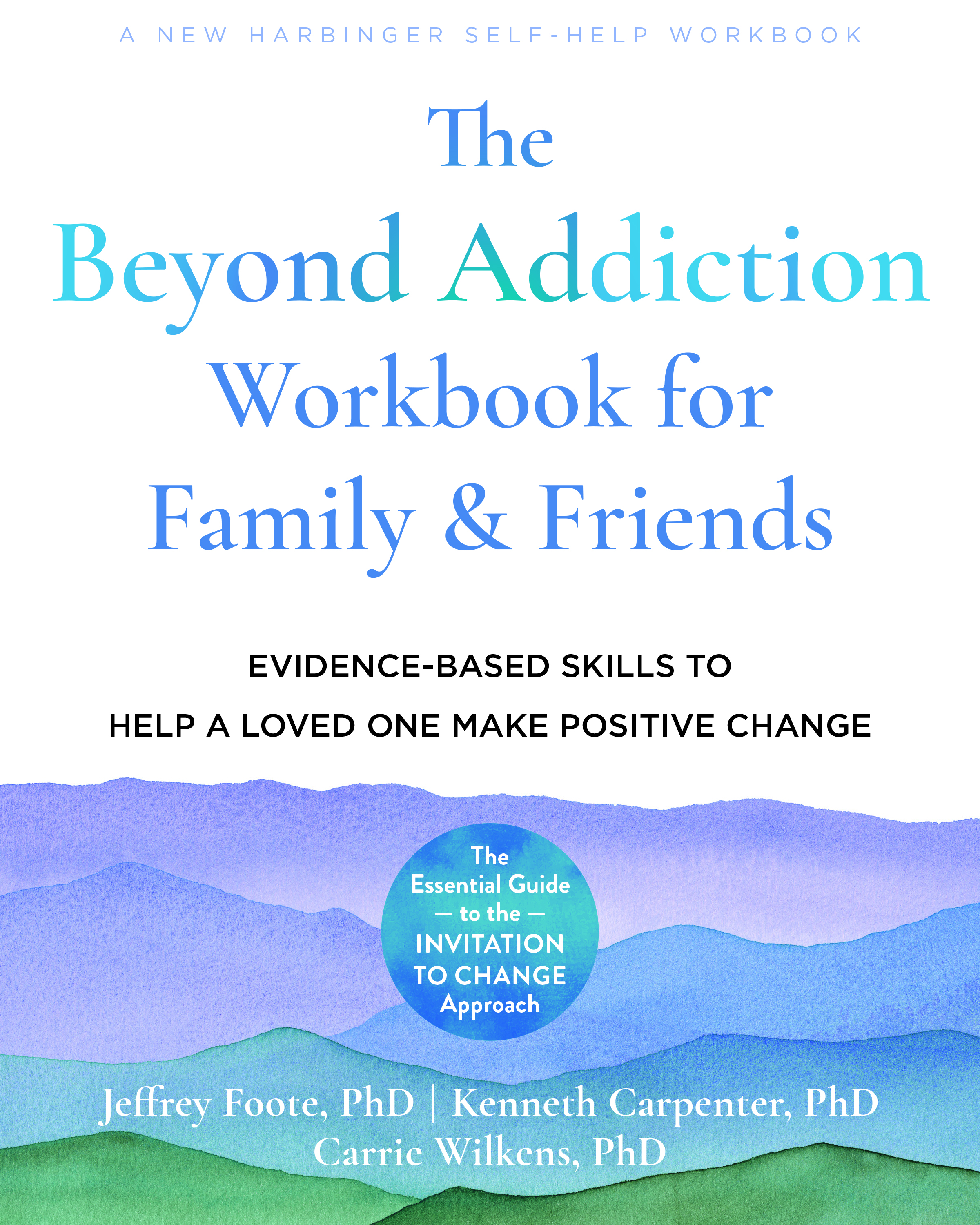Helping someone struggling with substance use can be a very difficult and emotional journey, made worse by lack of understanding, fear, and the impact of stigma and shame. You’ve probably heard people say “They have to hit rock bottom,” making you feel as if there’s nothing you can do to help or that you’re “codependent” or an “enabler,” which makes you feel you shouldn’t help or have a problem yourself. To top it off, words commonly used to describe the person you care about (“alcoholic,” “addict,” “dirty,” “junkie”) are loaded with stigma, shame, and pessimism about the potential for change. If confrontation, interventions or detachment are all you feel you can do, you may be relieved to know there’s a kinder and more effective way to help.
There are several effective evidence-based strategies (i.e., backed by science) for helping people struggling with substance use, including Motivational Interviewing, Cognitive-Behavioral treatments and CRAFT (Community Reinforcement and Family Training) to name a few. The Invitation to Change ApproachⓇ (ITC) puts them together in a user-friendly way that lay people (family, friends, first responders, educators, faith-based leaders) and health professionals (nurses, doctors, therapists and recovery coaches) can use in their efforts to help. The ITC helps you understand substance use from a whole new perspective that improves collaboration and gives you practical communication and behavior tools that promote change. Maybe most importantly, the ITC will help you have hope that things can get better, for everyone. This is a brief outline of the ITC approach. Please go to www.cmcffc.org for more details.
Behaviors make sense.
What if I told you I could help you feel less depressed, be funnier, have less physical pain, feel more excited to go to work, lose weight, get a good night’s sleep? We all engage in behaviors (such as exercising, going to religious services, dancing, protesting, eating cookies) because they’re valuable to us for some reason. They help us feel good, reduce anxiety, feel connected to our friends, alleviate pain, etcetera. The pull to use substances is no different: if it works in some way, we keep doing it. Understanding a person’s reasons for their behavior is a crucial part of helping them change because it allows you to think through alternative behaviors you can support that compete with the ones you would like them to reduce or eliminate. It can also help you create an environment of connection and collaboration. This concept can be difficult to wrap our heads around in the context of substance use, especially when the consequences are life threatening. What may have begun as an effort to manage social anxiety becomes a way to not feel physically sick. Both of these behaviors make sense.
One size does not fit all. Every individual using substances and their families are unique. The current scientific evidence indicates psychological, biological, and social factors contribute to substance use and that the mix of factors for each person is different. Understanding that one size does not fit all invites you and your loved one to find change in a way that works for them and for you.
Ambivalence is normal. Since a person’s substance use makes sense to them in some way, when they start to give up the behavior, they will have moments when they think, I’m not so sure about this! Feeling ambivalent does not mean someone is being stubborn or “in denial.” It means they’re remembering, and perhaps turning back to, what has worked in the past. Change is an ongoing process that takes time and learning new behaviors. Understanding that ambivalence is normal will help you respond in ways that help a person keep moving toward positive changes that work for them.
Self-awareness (helping yourself helps). As you try to help, it’s likely you’ll struggle with feelings like fear, pain, anger and possibly shame. Developing awareness of yourself as you navigate this process really matters. While this includes increased awareness of your thoughts, feelings, body sensations, and reactions, it also includes getting in touch with your values -what you care most deeply about, like love, connection, and cooperation. These will turn out to be crucial anchors in the difficult process of being an effective helper.
Willingness: a new way to relate to pain. Choosing to remain anchored in those values, while also acknowledging the pain that comes with this struggle, is what we call willingness. It’s normal to want to eliminate discomfort by insisting or wishing a person would change because it seems obvious they need to. Unfortunately, wanting the pain to go away doesn’t often work, and can eat up valuable time, energy, and hope. Instead, you can learn to embrace the fact that helping another person includes connection and pain, hope and fear, progress and setbacks, and the willingness to allow both sides of this coin.
Self-compassion goes the distance. People in emergency-helper mode often forget to take time for themselves, get enough sleep, find small pleasures, or keep in touch with friends. Your emotional resilience, physical health, social supports, and perspective on change all matter. To paraphrase the classic airplane safety announcement: we need to secure our own oxygen masks before assisting others. Practicing self-kindness and self-care will sustain your helping efforts, and model behaviors that the person you are trying to help will need as they consider and make changes.
Good communication (words matter). When someone you care about is using substances or engaging in other risky behaviors, it’s normal to find yourself expressing your feelings by yelling, lecturing, or shutting down. Unfortunately, communicating this way usually causes the person you’re speaking with to push back against what you’re saying. You can learn critical skills that help you have conversations to increase collaboration, engagement and change.
Your behavior shapes theirs. In addition to the words we use, how we act and react can increase another person’s positive behaviors and decrease negative ones. Someone who’s trying to give up substances will likely need to overhaul multiple areas of their life: how they think, work, manage their feelings, relate to their bodies, connect with family and friends, and possibly their sense of identity. For most, confidence is low and they need time to develop new skills. You can contribute to their motivation and confidence by noticing, supporting, and rewarding any progress they make, even if it doesn’t relate to substances. Celebrating small victories can help them grow larger over time. And when negative behaviors occur, allowing their natural, negative consequences to occur will help decrease those behaviors over time, as will setting reasonable limits. To be clear, negative behavior in the form of physical or emotional abuse is not okay. If you or other family members don’t feel safe, please seek professional help.
Practice, practice, practice. Last but not least, nothing new can happen without new learning and practice. As people try to make changes, they need room to make mistakes and try to let the discouraging moments roll past. This is true for the person you are hoping to help and for you.The information and skills that make up the Invitation to Change are not a quick fix, but are meant to help create the conditions for change; they will help you effectively support a person in making positive changes and help you thrive in the process.



